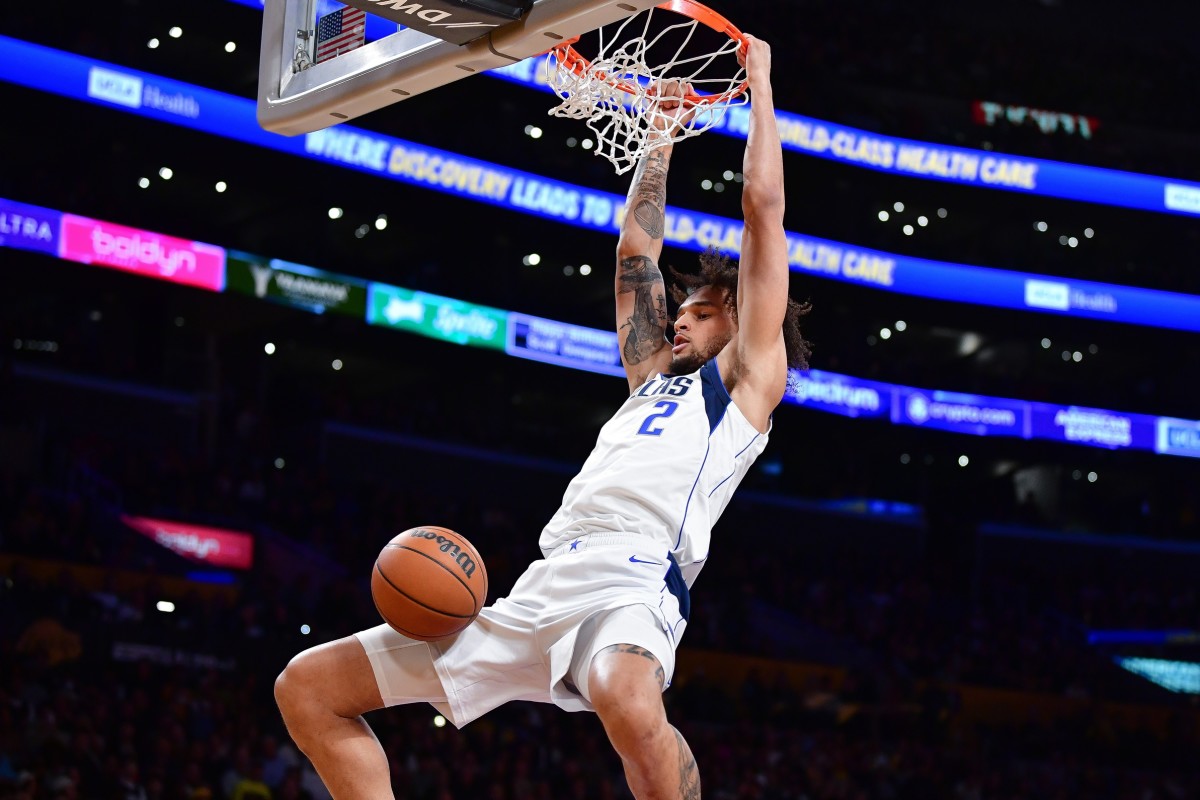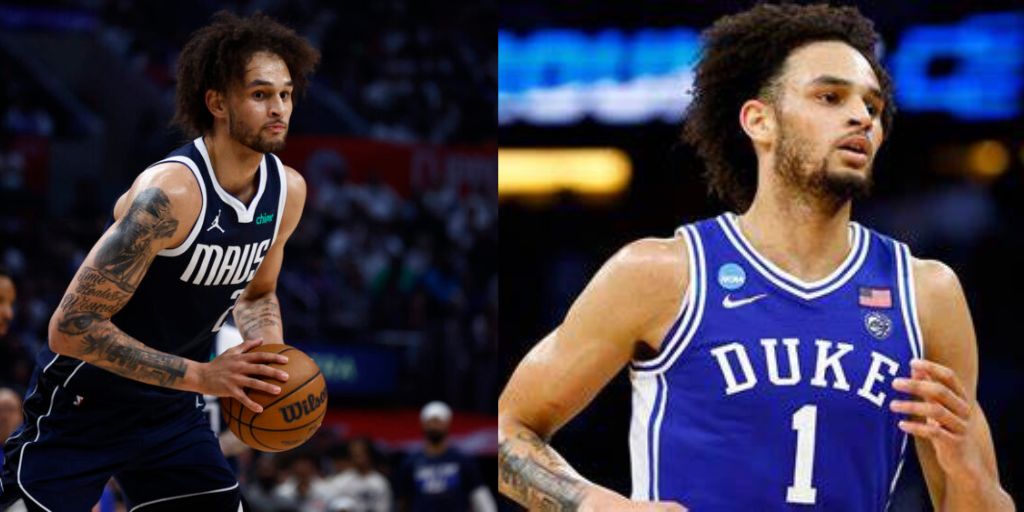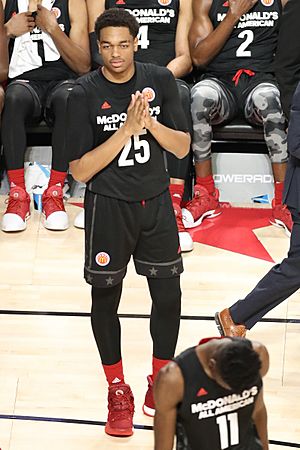As a professional athlete, the preparation for game day is a crucial aspect of performance. For Dereck Lively II, a rising star in the basketball world, this routine is not just about physical readiness but also mental resilience, nutrition, and strategic planning. This article delves into the various elements of Dereck Lively II’s game day preparation, illustrating how he optimizes his performance through a comprehensive approach.
The Importance of Mental Preparation

Mental preparation is a cornerstone of athletic performance. For Lively, the mental game begins well before he steps onto the court. Here are some key aspects of his mental preparation:
- Visualization Techniques: Lively employs visualization techniques to mentally rehearse his performance. This involves imagining himself executing plays, making shots, and responding to various game scenarios.
- Mindfulness Practices: Integrating mindfulness practices such as meditation or breathing exercises helps Lively maintain focus and reduce anxiety. Research has shown that athletes who practice mindfulness can enhance their performance by improving concentration and emotional regulation.
- Game Film Analysis: Reviewing game footage is another critical element. By analyzing both his previous performances and studying opponents, Lively can identify strengths and weaknesses, allowing him to strategize effectively.
Physical Conditioning: The Athlete’s Edge
Physical readiness is paramount for any athlete, and Lively is no exception. His training regimen is designed to ensure he is in peak condition for game day. Key components of his physical preparation include:
- Strength Training: Lively follows a rigorous strength training program focusing on building muscle and improving endurance. This includes weightlifting and bodyweight exercises that enhance his explosiveness on the court.
- Cardiovascular Fitness: Endurance is essential for maintaining performance throughout the game. Lively incorporates cardiovascular exercises such as running, cycling, and high-intensity interval training (HIIT) to boost his stamina.
- Flexibility and Mobility Work: To prevent injuries and enhance performance, Lively dedicates time to flexibility and mobility exercises. This includes dynamic stretching and yoga, which promote overall body stability and recovery.
Nutrition: Fueling the Body
What an athlete eats can significantly impact their performance on game day. Lively follows a carefully crafted nutrition plan that provides him with the energy he needs. Here’s a breakdown of his dietary strategies:
- Pre-Game Meals: Lively opts for a balanced meal rich in carbohydrates, proteins, and healthy fats. Common choices include whole-grain pasta, lean chicken, and a variety of vegetables, ensuring he has sustained energy throughout the game.
- Hydration: Staying hydrated is crucial for peak performance. Lively monitors his fluid intake, ensuring he is well-hydrated before and during the game. This helps in maintaining endurance and cognitive function.
- Supplements: While whole foods are the foundation of his diet, Lively may also incorporate supplements under the guidance of a nutritionist. These can include protein powders, vitamins, and minerals that support overall health.
Game Day Rituals: Building Confidence

Rituals and routines can provide a sense of control and confidence for athletes. Lively has several game day rituals that help him mentally and physically prepare:
- Warm-Up Routine: Lively has a specific warm-up routine that includes dynamic stretches and shooting practice. This not only prepares his body but also helps him get in the right mindset for the game.
- Listening to Music: Music plays a significant role in Lively’s pre-game routine. He curates a playlist that energizes him and elevates his mood, setting a positive tone for the game.
- Team Huddles: Engaging with teammates in pre-game huddles fosters camaraderie and boosts morale. These moments allow players to share their focus and intentions for the game.
Adapting to Different Opponents
Every game presents unique challenges, and Lively understands the importance of adapting his strategies based on opponents. His preparation includes:
- Scouting Reports: Lively studies scouting reports to familiarize himself with the strengths and weaknesses of opposing players. This enables him to adjust his gameplay accordingly.
- In-Game Adjustments: Being able to make real-time adjustments during a game is essential. Lively communicates with his coach and teammates to adapt to changing situations on the court.
Case Study: A Game Day in Action

To illustrate the effectiveness of Lively’s preparation, let’s consider a game day scenario. On a recent game day against a top-ranked opponent, Lively followed his established routine:
- Morning Routine: He began his day with a nutrient-packed breakfast, followed by a mindfulness session to center his thoughts.
- Pre-Game Analysis: In the hours leading to the game, Lively reviewed film and engaged with coaches to discuss strategies.
- Warm-Up and Rituals: As game time approached, he followed his warm-up routine and listened to his carefully curated playlist, feeling energized and ready to compete.
- In-Game Performance: Throughout the game, Lively showcased his adaptability, adjusting his gameplay based on the opponents’ strategies, ultimately leading his team to victory.
Conclusion: The Path to Success

Dereck Lively II’s preparation for game day is a multifaceted approach that combines mental, physical, and nutritional elements. By focusing on mental resilience, rigorous physical conditioning, proper nutrition, and adaptive strategies, Lively positions himself for success on the basketball court. His dedication to preparation not only enhances his performance but also serves as a model for aspiring athletes. The key takeaway is that success in sports is not merely about talent; it is the culmination of preparation, strategy, and the right mindset that leads to excellence in performance.




